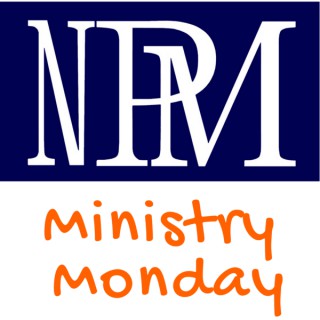Podcast appearances and mentions of don saliers
- 7PODCASTS
- 8EPISODES
- 35mAVG DURATION
- ?INFREQUENT EPISODES
- Mar 25, 2021LATEST
POPULARITY
Latest podcast episodes about don saliers
"Singing Our Faith" Rev. Joe Evans & Rev. Cassie Waits Dr. Jeffrey Meeks, Director of Music (FPC Marietta) Dr. Don Saliers, Professor of Theology and Music (Emory)
0009 - The Weight - Don Saliers - Reconnecting Liturgy and Life
In times of adversity and crisis, it is helpful to seek the counsel of wise teachers. Our guest today, Don Saliers, Theologian in Residence at Candler School of Theology, is one of our wisest teachers. He's handling social distancing, in part, by playing the piano, revisiting sacred music from Bach to the spirituals. “There are times when I don't have the words. And I don't have the sense of what needs to be said. All I have is a kind of buzzing confusion of emotion or feeling, and then I come across a piece of music or a poem or psalm that articulates it for me, that gives me the language I need to say to God, and to myself.”In this conversation, we explore the deep, rich treasury of Christian spirituality from music to poetry to prayer that allows us, even in adversity, to be fully alive to God as human beings in the world.Psalms in Our Lamentable World, by Don Saliers:https://elischolar.library.yale.edu/yjmr/vol1/iss1/7/Beethoven's Piano Sonatas:https://www.youtube.com/watch?v=G7sDg8_26N8"Sometimes I Feel Like A Motherless Child":https://www.youtube.com/watch?v=ZXg9UFUXFXUThe Poetry of Mary Oliver:https://www.poetryfoundation.org/poets/mary-oliver
Guest minister Dr. Don Saliers speaks on the Gospel of John 1:29–42
This month’s podcast features teaching from Don Saliers on the liturgy of the Psalms, offered at a Five-Day Academy in 2015 in Alabama. Calling us to the depths of the human heart, Don illumines the Psalms as a “school of prayer” that invites humanity to operate at full stretch and to use language to talk about God that is language of the heart. The Psalms are where we find such language to guide us.
#059: Hymns from Yesterday for Tomorrow (ft. Dr. Don Saliers)
At the end of each episode every week, I make a general ask for your suggestions of topics for future episodes. It’s been interesting to see what issues are on your minds, and I’ve done my best to incorporate the needs you’ve shared into the conversations we host. Often, the topics shared with me have to do in one way or another with repertoire development. So, today we’re going to open the repertoire conversation, but know that we’ll be picking up more repertoire-related topics in future episodes and NPM content. In fact, as coincidence would have it, the upcoming May issue of Pastoral Musicmagazine will focus on building repertoire.So, let’s begin with hymnody. Hymns – both in reference to text and to tune – are so very important in the congregational life of the Church. Often, however, some communities think of hymns as artifacts rather than possibilities. Today we’ll challenge this assumption. To do so, we’ll hear from an article written by Dr. Don Saliers. Originally published in the April 1981 issue of Pastoral Music, Don helps break open what constitutes a “good” hymn and shares insight into the importance of hymn singing and the development of new hymns.
Emotions Conference 2016 (20 of 20) | Jim Grimsley, Don Saliers | Discussion: Aesthetic Emotions
Emory CMBC Conference: The Foundations of Emotions in Mind, Brain, and Culture
Emotions Conference 2016 (18 of 20)| Don Saliers | Processing Emotions Musically
This paper begins by setting out several important theories of how music is claimed to “express” human emotions. An inevitable comparison follows with how human emotions are linguistically constituted and expressed. This, in turn, highlights the complexity of musical “syntax” and “grammar” as well as the limits of language—or at least the limits of “cognitive” theories of emotion. Contrasting examples of music will be drawn from Bach, Copeland and Art Tatum’s jazz piano . I will conclude with some threshold questions about how neuropsychology may contribute to our understanding of relations between music and human emotion. (February 12, 2016)
Don Saliers and Edward Foley — The Meaning of Communion: At the Table
What are the origins of communion, and what is its deepest social relevance? Two leading theologians of communion describe a ritual that is not just personally meaningful for the believer, but also collectively and ethically challenging for Christians.










